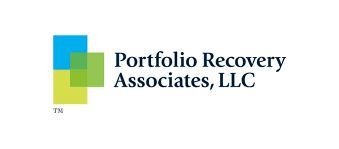Portfolio Recovery Associates (PRA) is a major debt collector, and like many debt collectors, they’ve faced their fair share of lawsuits from consumers. If you’re facing debt collection efforts from PRA, you might be wondering if you have grounds for a portfolio recovery lawsuit. This blog post will explore your rights, potential claims against PRA, and the chances of winning a credit card lawsuit against them.
Understanding Debt Collection Laws
Before diving into lawsuits, it’s crucial to understand the Fair Debt Collection Practices Act (FDCPA). This federal law regulates how debt collectors can interact with consumers. Portfolio recovery lawsuits often center around violations of the FDCPA. Here are some key provisions:
- Communication: Debt collectors can only contact you at reasonable times and places. They can’t harass you with excessive calls or contact you at work if your employer prohibits it.
- False or Misleading Statements: Debt collectors can’t lie about the amount you owe, threaten you with arrest or imprisonment, or claim they’re lawyers or government officials.
- Verification of Debt: Upon your request, debt collectors must provide written verification of the debt, including the original creditor’s name, amount owed, and date of delinquency.
Potential Claims Against Portfolio Recovery Associates
If PRA’s collection practices violate the FDCPA, you might have grounds for a lawsuit. Here are some common claims:
- Harassment: This could include excessive phone calls, contacting you outside of reasonable hours, or using abusive language.
- False Statements: Did PRA misrepresent the amount you owe, claim you’d be arrested if you didn’t pay, or falsely state their affiliation with a law firm or government agency?
- Failure to Validate Debt: Did PRA refuse to provide written verification of the debt upon your request?
- Damaging Your Credit Report: Did PRA report inaccurate information to credit bureaus, or fail to update your credit report after you paid the debt?
Chances of Winning a Portfolio Recovery Lawsuit
The chances of winning a credit card lawsuit against PRA depend on the specifics of your case. Here are some factors to consider:
- Strength of your claim: Did PRA clearly violate the FDCPA? Can you document the harassment, false statements, or other violations?
- Evidence: Do you have phone records, letters, or emails that support your claim?
- Statute of limitations: Each state has a time limit for filing lawsuits. Make sure you haven’t waited too long to take action.
Considering a Portfolio Recovery Lawsuit? Here’s What to Do
If you believe PRA has violated the FDCPA, here are some steps you can take:
- Gather evidence: Keep all communication from PRA, including phone records, letters, emails, and voicemails.
- Send a debt validation letter: Request written verification of the debt within 30 days of receiving first contact from PRA.
- Contact an attorney: An experienced attorney specializing in consumer rights can evaluate your case and advise you on your legal options.
- Report PRA to the CFPB: You can file a complaint with the Consumer Financial Protection Bureau (CFPB) regarding PRA’s alleged violations.
Beyond Lawsuits: Alternative Dispute Resolution
Lawsuits are expensive and time-consuming. Before resorting to a lawsuit, consider alternative dispute resolution (ADR). This could involve mediation, where a neutral third party helps you and PRA reach a settlement.
Taking Charge of Your Debt
While lawsuits can be a tool to address unfair collection practices, dealing with debt is crucial. Here are some additional tips:
- Negotiate a settlement: Contact PRA and attempt to negotiate a settlement for a lower amount.
- Consider a debt consolidation loan: This could simplify repayment by combining multiple debts into one monthly payment.
- Develop a budget and repayment plan: Create a plan to manage your finances and pay off your debts.
Remember, you have rights when it comes to debt collection. If Portfolio Recovery Associates is harassing you or violating the FDCPA, you have options. Don’t hesitate to seek legal counsel and explore your options for a portfolio recovery lawsuit or alternative solutions.
Additional Resources:
- The Federal Trade Commission (https://www.ftc.gov/legal-library/browse/rules/fair-debt-collection-practices-act-text) provides resources on the Fair Debt Collection Practices Act.
- The Consumer Financial Protection Bureau (https://www.consumerfinance.gov/) offers information on debt collection and how to file a complaint.
